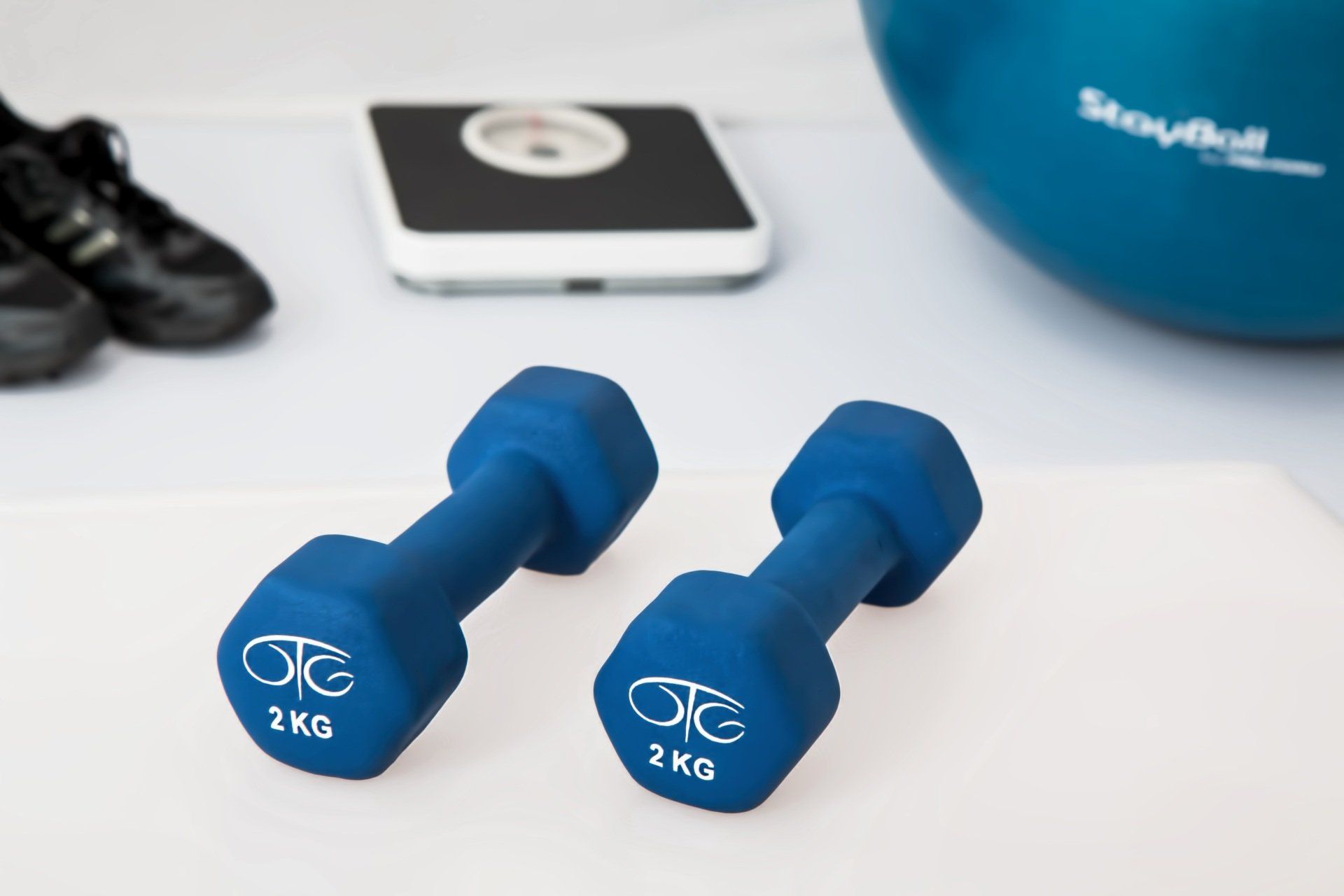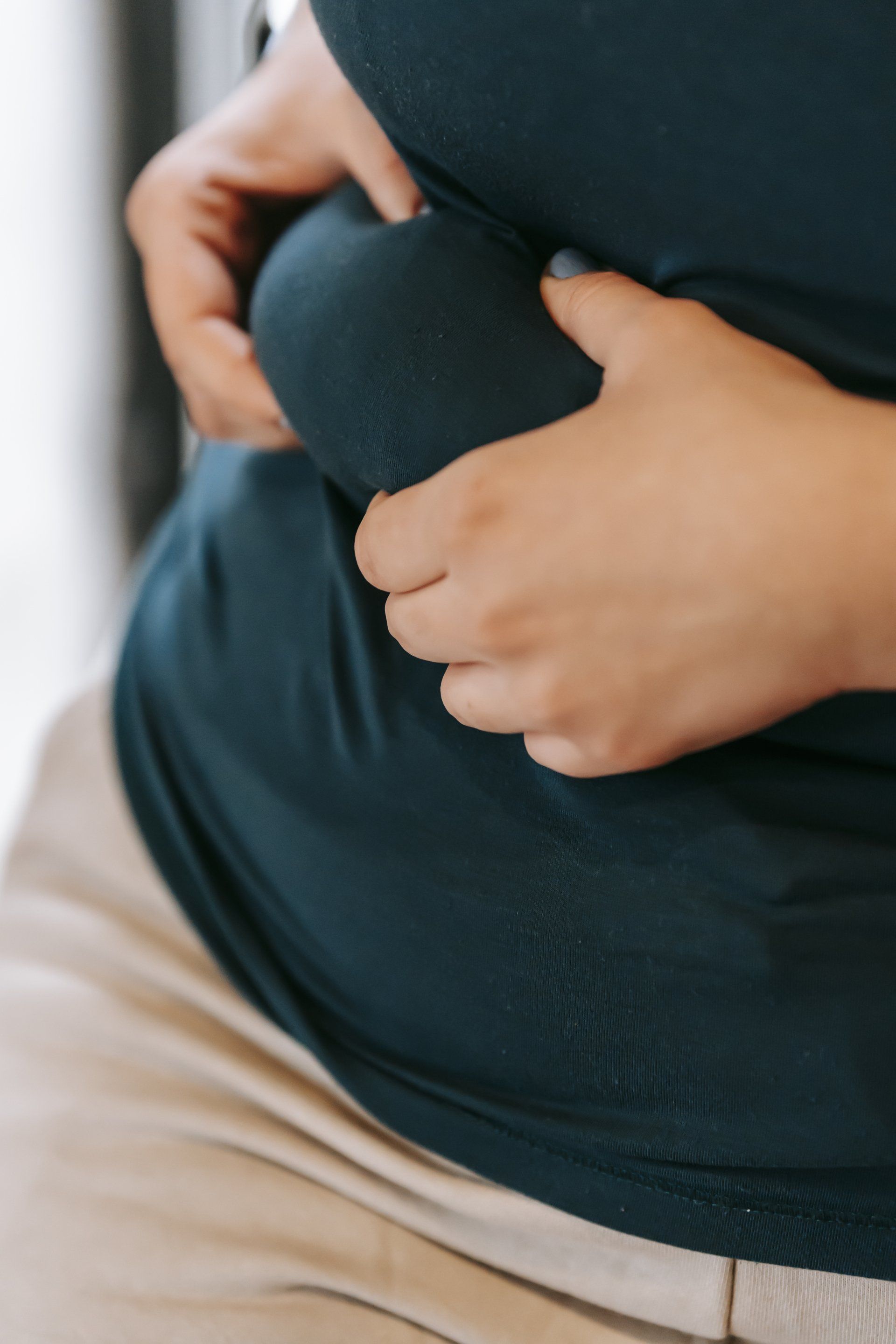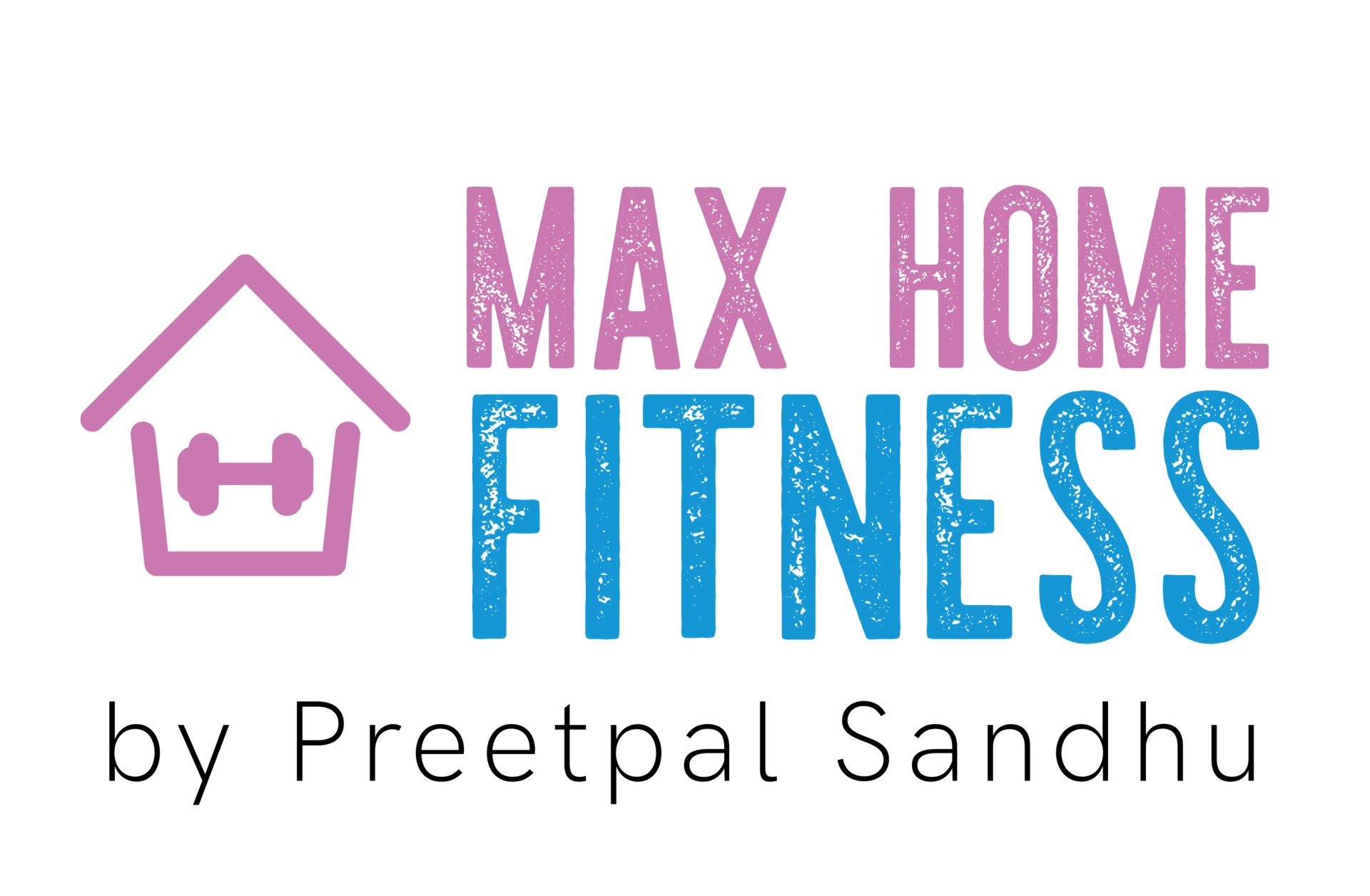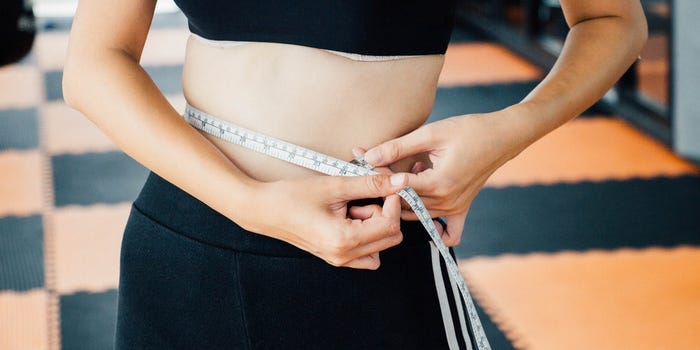16 Ways to Motivate Yourself to Lose Weight
Caroline Pullen, MS, RD • October 8, 2021
16 Ways to Motivate Yourself to Lose Weight
Starting and sticking to a healthy weight loss plan can sometimes seem impossible.
Often, people simply lack the motivation to get started or lose their motivation to keep going. Luckily, motivation is something you can work to increase.
Here are 16 ways to motivate yourself to lose weight.
1. Determine Why You Want to Lose Weight
Clearly define all the reasons you want to lose weight
and write them down. This will help you stay committed and motivated to reach your weight loss goals.
Try to read through them daily and use them as a reminder when tempted to stray from your weight loss plans.
Your reasons could include preventing diabetes, keeping up with grandchildren, looking your best for an event, improving your self-confidence or fitting into a certain pair of jeans.
Many people start losing weight because their doctor suggested it, but research shows that people are more successful if their weight loss motivation comes from within.
SUMMARY:
Clearly define your weight loss goals and write them down. Make sure your motivation is driven from within for long-term success.
2. Have Realistic Expectations
Many diets and diet products claim quick and easy weight loss. However, most practitioners recommend only losing 1–2 pounds (0.5–1 kg) per week.
Setting unattainable goals can lead to feelings of frustration and cause you to give up. On the contrary, setting and accomplishing achievable goals leads to feelings of accomplishment.
Also, people who reach their self-determined weight loss goals are more likely to maintain their weight loss
long-term.
The good news is that just a little weight loss of 5–10% of your body weight can have a large impact on your health. If you are 180 pounds (82 kg), that is just 9–18 pounds (4–8 kg). If you are 250 pounds (113 kg), it’s 13–25 pounds (6–11 kg).
In fact, losing 5–10% of your body weight can:
Improve blood sugar control
Reduce the risk of heart disease
Lower cholesterol levels
Reduce joint pain
Reduce the risk of certain cancers
SUMMARY:
Set realistic weight loss expectations to boost feelings of achievement and prevent burn out. Just a moderate amount of weight loss of 5–10% can have a major impact on your health.
3. Focus on Process Goals
Many people trying to lose weight only set outcome goals, or goals they want to accomplish at the end.
Typically, an outcome goal will be your final target weight.
However, focusing only on outcome goals can derail your motivation. They can often feel too distant and leave you feeling overwhelmed.
Instead, you should set process goals, or what actions you’re going to take to reach your desired outcome. An example of a process goal is exercising four times a week.
Overweight women participating in a weight loss program found those who were process focused were more likely to lose weight and less likely to deviate from their diets, compared to those who focused on weight loss outcomes alone.
Consider setting SMART goals to set strong goals. SMART stands for :
1. Specific
2. Measurable
3. Achievable
4. Realistic
5. Time-based
Some examples of SMART goals include:
1. I will walk briskly for 30 minutes five days next week.
2. I will eat four servings of vegetables every day this week.
3. I will only drink one soda this week.
SUMMARY:
Setting SMART process goals will help you stay motivated, while focusing only on outcome goals can lead to disappointment and decrease your motivation.
4. Pick a Plan That Fits Your Lifestyle
Find a weight loss
plan that you can stick to, and avoid plans that would be nearly impossible to follow in the long term.
While there are hundreds of different diets, most are based on cutting calories.
Reducing your calorie intake will lead to weight loss, but dieting, especially frequent yo-yo dieting, has been found to be a predictor of future weight gain.
Therefore, avoid strict diets that completely eliminate certain foods. Research has found that those with an “all or nothing” mindset are less likely to lose weight.
Instead, consider creating your own custom plan. The following dietary habits have been proven to help you lose weight:
1. Decreasing calorie intake
2. Reducing portion sizes
3. Reducing frequency of snacks
4. Reducing fried food and desserts
5. Including fruits and vegetables
SUMMARY:
Pick an eating plan that you can stick to long term and avoid extreme or quick-fix diets.
5. Keep a Weight Loss Journal
Self-monitoring is crucial to weight loss motivation and success.
People who track their food intake are more likely to lose weight
and maintain their weight loss.
However, to keep a food journal correctly, you must write down everything you eat. This includes meals, snacks and the piece of candy you ate off your coworker’s desk.
You can also record your emotions in your food journal. This can help you identify certain triggers for overeating and help you find healthier ways to cope.
You can keep food journals on pen and paper or use a website or app. They have all been proven effective.
SUMMARY:
Keeping a food journal can help you measure progress, identify triggers and hold yourself accountable. You can use a website or app as a tool for tracking as well.
6. Celebrate Your Successes
Losing weight is hard, so celebrate all your successes to keep yourself motivated.
Give yourself some credit when you accomplish a goal. Social media or weight loss
sites with community pages are great places to share your successes and get support. When you feel pride in yourself, you will increase your motivation.
Moreover, remember to celebrate behavior changes and not just reaching a certain number on the scale.
For example, if you met your goal of exercising four days a week, take a bubble bath or plan a fun night with friends.
Additionally, you can further improve your motivation by rewarding yourself.
However, it’s important to pick appropriate rewards. Avoid rewarding yourself with food. Also, avoid rewards that are so expensive you would never buy it, or so insignificant that you would allow yourself to have it anyway.
The following are some good examples of rewards:
1. Getting a manicure
2. Going to a movie
3. Buying a new running top
4. Taking a cooking class
SUMMARY:
Celebrate all your successes throughout your weight loss journey. Consider rewarding yourself to further boost your motivation.
7. Find Social Support
People need regular support and positive feedback to stay motivated.
Tell your close family and friends about your weight loss goals so they can help support you on your journey.
Many people also find it helpful to find a weight loss buddy. You can work out together, hold each other accountable and encourage each other throughout the process.
Additionally, it can be helpful to involve your partner, but make sure to get support from other people too, such as your friends.
Furthermore, consider joining a support group. Both in-person and online support groups have been proven to be beneficial.
SUMMARY:
Having strong social support will help hold you accountable and keep you motivated to lose weight. Consider joining a support group to help boost your motivation along the way.
8. Make a Commitment
Research shows that those who make a public commitment are more likely to follow through with their goals.
Telling others about your weight loss goals will help you stay accountable. Tell your close family and friends, and even consider sharing them on social media. The more people you share your goals with, the greater the accountability.
Moreover, consider investing in a gym membership, package of exercise classes or paying for a 5K in advance. You are more likely to follow through if you have already made an investment.
SUMMARY:
Making a public commitment to lose weight will help you stay motivated and hold you accountable.
9. Think and Talk Positively
People who have positive expectations and feel confident in their ability to achieve their goals tend to lose more weight.
Also, people who use “change talk” are more likely to follow through with plans.
Change talk is making statements about commitment to behavioral changes, the reasons behind them and the steps you will take or are taking to reach your goals.
Therefore, start talking positively about your weight loss. Also, talk about the steps you are going to take and commit your thoughts out loud.
On the other hand, research shows that people who spend a lot of time only fantasizing about their dream weight are less likely to reach their goal. This is called mentally indulging.
Instead, you should mentally contrast. To mentally contrast, spend a few minutes imagining reaching your goal weight and then spend another few minutes imagining any possible obstacles that may get in the way.
Students had them mentally indulge or mentally contrast their dieting goals. Those who mentally contrasted were more likely to take action. They ate fewer calories, exercised more and ate fewer high-calorie foods.
Mentally contrasting is more motivating and leads to more action than mentally indulging, which can trick your brain into thinking you have already succeeded and cause you to never take any action to reach your goals.
SUMMARY:
Think and talk positively about your weight loss goals, but make sure you are realistic and focus on the steps you must take to reach them.
10. Plan for Challenges and Setbacks
Everyday stressors will always pop up. Finding ways to plan for them and developing proper coping skills will help you stay motivated no matter what life throws your way.
There will always be holidays, birthdays or parties to attend. And there will always be stressors at work or with family.
It’s important to start problem solving and brainstorming about these possible weight loss
challenges and setbacks. This will keep you from getting off track and losing motivation.
Many people turn to food for comfort. This can quickly lead to them abandoning their weight loss goals. Creating appropriate coping skills will prevent this from happening to you.
People who are better at handling stress and have better coping strategies will lose more weight and keep it off longer.
Consider using some of these methods to cope with stress:
1. Exercise
2. Practice square breathing
3. Take a bath
4. Go outside and get some fresh air
5. Call a friend
6. Ask for help
Remember to also plan for holidays, social events and eating out. You can research restaurant menus in advance and find a healthy option. At parties, you can bring a healthy dish or eat smaller portions.
SUMMARY:
It is crucial to plan for setbacks and have good coping practices. If you use food as a coping mechanism, start practicing other ways to cope.
11. Don’t Aim for Perfection and Forgive Yourself
You do not have to be perfect to lose weight.
If you have an “all or nothing” approach, you’re less likely to achieve your goals.
When you are too restrictive, you may find yourself saying “I had a hamburger and fries for lunch, so I might as well have pizza for dinner.” Instead, try to say, “I had a big lunch, so I should aim for a healthier dinner”.
And avoid beating yourself up when you make a mistake. Self-defeating thoughts will just hinder your motivation.
Instead, forgive yourself. Remember that one mistake is not going to ruin your progress.
SUMMARY:
When you aim for perfection, you will quickly lose your motivation. By allowing yourself flexibility and forgiving yourself, you can stay motivated throughout your weight loss journey.
12. Learn to Love and Appreciate Your Body
Research has repeatedly found that people who dislike their bodies are less likely to lose weight.
Taking steps to improve your body image can help you lose more weight and maintain your weight loss.
Furthermore, people who have a better body image are more likely to pick a diet they can sustain and try new activities that will help them reach their goals.
The following activities can help boost your body image:
1. Exercise
2. Appreciate what your body can do
3. Do something for yourself, such as getting a massage or manicure
4. Surround yourself with positive people
5. Stop comparing yourself to others, especially models
6. Wear clothes you like and that fit you well
7. Look in the mirror and say the things you like about yourself out loud
SUMMARY:
Boosting your body image can help you stay motivated to lose weight. Try the activities mentioned above to improve your body image.
13. Find an Exercise You Enjoy
Physical activity is an important part of losing weight. Not only does it help you burn calories, but it also improves your well-being.
The best kind is exercise you enjoy and can stick to.
There are many different types and ways to exercise, and it’s important to explore different options to find one you enjoy.
Consider where you want to exercise. Do you prefer to be inside or outside? Would you rather work out at a gym or in the comfort of your own home?
Also, figure out if you prefer to exercise alone or with a group. Group classes are very popular, and they help many people stay motivated. However, if you don’t enjoy group classes, working out on your own is just as good.
Lastly, listen to music while you work out, as doing so can increase motivation. People also tend to exercise longer when listening to music.
SUMMARY:
Exercise not only helps you burn calories, it also makes you feel better. Find an exercise you enjoy, so it can easily become part of your routine.
14. Find a Role Model
Having a role model can help you stay motivated to lose weight. However, you need to pick the right kind of role model to keep yourself motivated.
Hanging a picture of a supermodel on your fridge will not motivate you over time. Instead, find a role model that you can easily relate to.
Having a relatable and positive role model may help keep you motivated.
Maybe you know a friend who has lost a lot of weight and can be your inspiration. You can also look for inspirational blogs or stories about people who have successfully lost weight.
SUMMARY:
Finding a role model will help keep you motivated. It is important to find a role model that you can relate to.
15. Get a Dog
Dogs can be the perfect weight loss companions. In fact, studies show that owning a dog can help you lose weight.
First, dogs can increase your physical activity.
A Canadian study in dog owners found that people who had dogs walked an average of 300 minutes per week, while people who did not have dogs only walked an average of 168 minutes per week .
Second, dogs are great social support. Unlike your human work out buddy, dogs are almost always excited to get some physical activity.
As an added bonus, pet ownership is proven to improve overall health and well-being. It has been linked to lower cholesterol, lower blood pressure and reduced feelings of loneliness and depression.
SUMMARY:
Dogs ownership can help you lose weight by increasing your physical activity and providing great social support along the way.
16. Get Professional Help When Needed
Don’t hesitate to consult professional help to aid your weight loss efforts when needed. People who feel more confident in their knowledge and abilities will lose more weight.
This may mean finding a registered dietitian who can teach you about certain foods or an exercise physiologist to teach you how to exercise properly.
Many people also enjoy the accountability that seeing a professional provides them.
If you are still struggling to get motivated, consider finding a psychologist or dietitian who is trained in motivational interviewing, which has been proven to help people achieve their goals.
SUMMARY:
Professionals such as dietitians, exercise physiologists and psychologists can help boost your motivation and knowledge to help you reach your weight loss goals.
Credit Source: www.healthline.com

In today's fast-paced world, finding time to hit the gym or engage in outdoor activities can be challenging. However, staying fit and healthy doesn't have to be complicated or require expensive equipment. With the convenience of exercising at home, you can achieve your fitness goals without leaving your comfort zone. In this blog, we'll explore five top exercises that will help you get fitter right in the comfort of your own home. High-Intensity Interval Training (HIIT): HIIT workouts are incredibly effective for improving cardiovascular fitness and burning calories in a short amount of time. The beauty of HIIT is that it can be customized to suit your fitness level. Choose exercises such as burpees, jumping jacks, mountain climbers, or squat jumps, and perform them at maximum intensity for 30 seconds, followed by a 10-15 second rest. Repeat this cycle for 15-20 minutes, and you'll experience an intense full-body workout that boosts your metabolism and improves endurance. Bodyweight Strength Training: Strength training is crucial for building lean muscle mass, improving bone density, and increasing overall strength. You can achieve significant results using your own body weight as resistance. Classic exercises like push-ups, squats, lunges, planks, and tricep dips can be performed at home with no equipment. Aim for three sets of 12-15 repetitions for each exercise, gradually increasing the intensity as you progress. To add variety, consider incorporating variations like diamond push-ups, pistol squats, or single-leg glute bridges. Yoga: Yoga not only improves flexibility but also enhances mental well-being. With numerous online resources and apps offering guided yoga sessions, you can easily practice yoga at home. Set aside 20-30 minutes each day for a yoga routine that includes poses like downward dog, warrior, tree pose, and child's pose. Yoga helps strengthen your core, improves balance, reduces stress, and promotes relaxation. Incorporating a regular yoga practice into your fitness routine will bring both physical and mental benefits. Skipping Rope: Skipping rope might seem like a childhood pastime, but it's a fantastic cardiovascular exercise that burns calories and improves coordination. All you need is a sturdy skipping rope and enough space to jump. Start with a warm-up and then jump rope for 1-2 minutes, followed by a short rest period. Repeat this cycle for 10-15 minutes. As you progress, try incorporating different jump variations, such as high knees, double unders, or cross-overs. Skipping rope is an excellent option for a quick and effective workout that can be done anywhere in your home. Cardio Dance Workouts: If you enjoy dancing, cardio dance workouts are a fun way to get your heart pumping while improving coordination and endurance. Numerous online platforms offer dance fitness routines that cater to various styles and skill levels. Choose a dance style that interests you, such as Zumba, hip-hop, or salsa, and follow along with the instructor. These workouts not only provide a fantastic cardio session but also uplift your mood and make exercise enjoyable. Conclusion: Getting fitter at home is both achievable and convenient. By incorporating these top five exercises into your routine, you can build strength, improve cardiovascular fitness, enhance flexibility, and boost your overall well-being. Remember to start at your own pace, gradually increasing the intensity as you progress. With commitment and consistency, your home can become your personal fitness sanctuary, bringing you closer to your health and fitness goals. So, lace up your shoes, roll out your yoga mat, and let's get fitter right at home!

Exercise is defined as any movement that makes your muscles work and requires your body to burn calories. There are many types of physical activity, including swimming, running, jogging, walking, and dancing, to name a few. Being active has been shown to have many health benefits, both physically and mentally. It may even help you live longer. Here are the top 8 ways regular exercise benefits your body and brain. 1. It can makes you feel happier Exercise has been shown to improve your mood and decrease feelings of depression, anxiety, and stress. It produces changes in the parts of the brain that regulate stress and anxiety. It can also increase brain sensitivity for the hormones serotonin and norepinephrine, which relieve feelings of depression. Additionally, exercise can increase the production of endorphins, which are known to help produce positive feelings and reduce the perception of pain. Furthermore, exercise has been shown to reduce stress and improve symptoms of anxiety. Interestingly, it doesn’t matter how intense your workout is. It seems that your mood can benefit from exercise no matter the intensity of the physical activity. The effects of exercise on mood are so powerful that choosing to exercise (or not) even makes a difference over short periods. Active people who stopped exercising regularly experienced significant increases in symptoms of depression and anxiety, even after only a few weeks. 2. It can helps with weight loss Inactivity is a major factor in weight gain and obesity. To understand the effect of exercise on weight reduction, it is important to understand the relationship between exercise and energy expenditure. Your body spends energy in three ways: digesting food exercising maintaining body functions like your heartbeat and breathing While dieting, a reduced calorie intake will lower your metabolic rate, which can delay weight loss . On the contrary, regular exercise has been shown to increase your metabolic rate, which can burn more calories to help you lose weight. Combining aerobic exercise with resistance training can maximize fat loss and muscle mass maintenance, which is essential for keeping the weight off. 3. It is good for your muscles and bones Exercise plays a vital role in building and maintaining strong muscles and bones. Activities like weightlifting can stimulate muscle building when paired with adequate protein intake. This is because exercise helps release hormones that promote the ability of your muscles to absorb amino acids. This helps them grow and reduces their breakdown. As people age, they tend to lose muscle mass and function, which can lead to an increased risk of injury. Practicing regular physical activity is essential to reducing muscle loss and maintaining strength as you age. Also, exercise helps build bone density when you’re younger, in addition to helping prevent osteoporosis later in life. Interestingly, some research suggests that high impact exercise, such as gymnastics or running, or odd impact sports, such as soccer and basketball, may help promote a higher bone density than non-impact sports like swimming and cycling. SUMMARY Physical activity helps you build muscles and strong bones. It may also help prevent osteoporosis. 4. It can increases your energy level Exercise can be a real energy booster for many people, including those with various medical conditions. 6 weeks of regular exercise reduced feelings of fatigue for 36 people who had reported persistent fatigue. Furthermore, exercise can significantly increase energy levels for people with chronic fatigue syndrome (CFS) and other serious illnesses. In fact, exercise seems to be more effective at combating CFS than other treatments, including passive therapies like relaxation and stretching or no treatment at all. Additionally, exercise has been shown to increase energy levels in people with other conditions like cancer. SUMMARY Engaging in regular physical activity can increase your energy levels. This is true even in people with persistent fatigue and those with serious health conditions. 5. It can reduces your risk of chronic disease Lack of regular physical activity is a primary cause of chronic disease. Regular exercise has been shown to improve insulin sensitivity, heart health, and body composition. It can also decrease blood pressure and cholesterol levels. In contrast, a lack of regular exercise — even in the short term — can lead to significant increases in belly fat, which may increase the risk of type 2 diabetes and heart disease. That’s why regular physical activity is recommended to reduce belly fat and decrease the risk of developing these conditions. SUMMARY Daily physical activity is essential to maintaining a healthy weight and reducing the risk of chronic disease. 6. It can helps skin health Your skin can be affected by the amount of oxidative stress in your body. Oxidative stress occurs when the body’s antioxidant defenses cannot completely repair the cell damage caused by compounds known as free radicals. This can damage the structure of the cells and negatively impact your skin. Even though intense and exhaustive physical activity can contribute to oxidative damage, regular moderate exercise can actually increase your body’s production of natural antioxidants, which help protect cells. In the same way, exercise can stimulate blood flow and induce skin cell adaptations that can help delay the appearance of skin aging. SUMMARY Moderate exercise can provide antioxidant protection and promote blood flow, which can protect your skin and delay signs of aging. 7. It can helps your brain health and memory Exercise can improve brain function and protect memory and thinking skills. To begin with, it increases your heart rate, which promotes the flow of blood and oxygen to your brain. It can also stimulate the production of hormones that enhance the growth of brain cells. Plus, the ability of exercise to prevent chronic disease can translate into benefits for your brain, since its function can be affected by these diseases. Regular physical activity is especially important in older adults since aging — combined with oxidative stress and inflammation — promotes changes in brain structure and function. Exercise has been shown to cause the hippocampus, a part of the brain that’s vital for memory and learning, to grow in size, which may help improve mental function in older adults. Lastly, exercise has been shown to reduce changes in the brain that can contribute to conditions like Alzheimer’s disease and schizophrenia. SUMMARY Regular exercise improves blood flow to the brain and helps brain health and memory. Among older adults, it can help protect mental function. 8. It can helps with relaxation and sleep quality Regular exercise can help you relax and sleep better. With regard to sleep quality, the energy depletion that occurs during exercise stimulates recuperative processes during sleep. Moreover, the increase in body temperature that occurs during exercise is thought to improve sleep quality by helping it drop during sleep. One review of six studies found that participating in an exercise training program helped improve self-reported sleep quality and reduced sleep latency, which is the amount of time it takes to fall asleep. Another older study showed that 16 weeks of physical activity improved sleep quality and helped 17 people with insomnia sleep longer and more deeply than the control group. It also helped them feel more energized during the day. What’s more, engaging in regular exercise seems to be beneficial for older adults, who are often affected by sleep disorders. You can be flexible with the kind of exercise you choose. It appears that either aerobic exercise alone or aerobic exercise combined with resistance training can both improve sleep quality. SUMMARY Regular physical activity, regardless of whether it is aerobic or a combination of aerobic and resistance training, can help you sleep better and feel more energized during the day. Credit Source: www.healthline.com

We include products we think are useful for our readers. If you buy through links on this page, we may earn a small commission. Here’s our process. There is a lot of bad weight loss information on the internet. Much of what is recommended is questionable at best, and not based on any actual science. However, there are several natural methods that have actually been proven to work. Here are 20 easy ways to lose weight naturally. 1. Add Protein to Your Diet When it comes to weight loss, protein is the king of nutrients. Your body burns calories when digesting and metabolizing the protein you eat, so a high-protein diet can boost metabolism by up to 80–100 calories per day. A high-protein diet can also make you feel more full and reduce your appetite. In fact, some studies show that people eat over 400 fewer calories per day on a high-protein diet. Even something as simple as eating a high-protein breakfast (like eggs) can have a powerful effect. 2. Eat Whole, Single-Ingredient Foods One of the best things you can do to become healthier is to base your diet on whole, single-ingredient foods. By doing this, you eliminate the vast majority of added sugar, added fat and processed food. Most whole foods are naturally very filling, making it a lot easier to keep within healthy calorie limits. Furthermore, eating whole foods also provides your body with the many essential nutrients that it needs to function properly. Weight loss often follows as a natural side effect of eating whole foods. 3. Avoid Processed Foods Processed foods are usually high in added sugars, added fats and calories. What’s more, processed foods are engineered to make you eat as much as possible. They are much more likely to cause addictive-like eating than unprocessed foods. 4. Stock Up on Healthy Foods and Snacks Food you keep at home greatly affects weight and eating behavior. By always having healthy food available, you reduce the chances of you or other family members eating unhealthy. There are also many healthy and natural snacks that are easy to prepare and take with you on the go. These include yogurt, whole fruit, nuts, carrots, and hard-boiled eggs. 5. Limit Your Intake of Added Sugar Eating a lot of added sugar is linked with some of the world’s leading diseases, including heart disease, type 2 diabetes and cancer. Since sugar goes by many names in ingredient lists, it can be very difficult to figure out how much sugar a product actually contains. Minimizing your intake of added sugar is a great way to improve your diet. 6. Drink Water There is actually truth to the claim that drinking water can help with weight loss. Drinking 0.5 liters (17 oz) of water may increase the calories you burn by 24–30% for an hour afterward. Drinking water before meals may also lead to reduced calorie intake, especially for middle-aged and older people. Water is particularly good for weight loss when it replaces other beverages that are high in calories and sugar. 7. Avoid Liquid Calories Liquid calories come from beverages like sugary soft drinks, fruit juices, chocolate milk and energy drinks. These drinks are bad for health in several ways, including an increased risk of obesity. A drastic 60% increase in the risk of obesity among children, for each daily serving of a sugar-sweetened beverage. It’s also important to note that your brain does not register liquid calories the same way it does solid calories, so you end up adding these calories on top of everything else that you eat. 8. Limit Your Intake of Refined Carbs Refined carbs are carbs that have had most of their beneficial nutrients and fiber removed. The refining process leaves nothing but easily digested carbs, which can increase the risk of overeating and disease. The main dietary sources of refined carbs are white flour, white bread, white rice, sodas, pastries, snacks, sweets, pasta, breakfast cereals, and added sugar. 9. Fast Intermittently Intermittent fasting is an eating pattern that cycles between periods of fasting and eating. There are a few different ways to do intermittent fasting, including the 5:2 diet, the 16:8 method and the eat-stop-eat method. Generally, these methods make you eat fewer calories overall, without having to consciously restrict calories during the eating periods. This should lead to weight loss, as well as numerous other health benefits. 10. Eat More Fruits and Vegetables Fruits and vegetables are extremely healthy, weight-loss-friendly foods. In addition to being high in water, nutrients and fiber, they usually have very low energy density. This makes it possible to eat large servings without consuming too many calories. Numerous studies have shown that people who eat more fruits and vegetables tend to weigh less. 11. Count Calories Once in a While Being aware of what you’re eating is very helpful when trying to lose weight. There are several effective ways to do this, including counting calories, keeping a food diary or taking pictures of what you eat. Using an app or another electronic tool may be even more beneficial than writing in a food diary. 12. Use Smaller Plates Using smaller plates helps you eat less, because it changes how you see portion sizes. People seem to fill their plates the same, regardless of plate size, so they end up putting more food on larger plates than smaller ones. Using smaller plates reduces how much food you eat, while giving you the perception of having eaten more. 13. Try a Low-Carb Diet That low-carb diets are very effective for weight loss. Limiting carbs and eating more fat and protein reduces your appetite and helps you eat fewer calories. This can result in weight loss that is up to 3 times greater than that from a standard low-fat diet. A low-carb diet can also improve many risk factors for disease. 14. Eat More Slowly If you eat too fast, you may eat way too many calories before your body even realizes that you are full. Faster eaters are much more likely to become obese, compared to those who eat more slowly. Chewing more slowly may help you eat fewer calories and increase the production of hormones that are linked to weight loss. 15. Add Eggs to Your Diet Eggs are the ultimate weight loss food. They are cheap, low in calories, high in protein and loaded with all sorts of nutrients. High-protein foods have been shown to reduce appetite and increase fullness, compared to foods that contain less protein. Furthermore, eating eggs for breakfast may cause up to 65% greater weight loss over 8 weeks, compared to eating bagels for breakfast. It may also help you eat fewer calories throughout the rest of the day. 16. Spice Up Your Meals Chili peppers and jalapenos contain a compound called capsaicin, which may boost metabolism and increase the burning of fat. Capsaicin may also reduce appetite and calorie intake. 17. Take Probiotics Probiotics are live bacteria that have health benefits when eaten. They can improve digestive health and heart health, and may even help with with weight loss. Overweight and obese people tend to have different gut bacteria than normal-weight people, which may influence weight. Probiotics may help regulate the healthy gut bacteria. They may also block the absorption of dietary fat, while reducing appetite and inflammation. Of all the probiotic bacteria, Lactobacillus gasseri shows the most promising effects on weight loss. 18. Get Enough Sleep Getting enough sleep is incredibly important for weight loss, as well as to prevent future weight gain. Sleep-deprived people are up to 55% more likely to become obese, compared to those who get enough sleep. This number is even higher for children. This is partly because sleep deprivation disrupts the daily fluctuations in appetite hormones, leading to poor appetite regulation. 19. Eat More Fiber Fiber-rich foods may help with weight loss. Foods that contain water-soluble fiber may be especially helpful, since this type of fiber can help increase the feeling of fullness. Fiber may delay stomach emptying, make the stomach expand and promote the release of satiety hormones. Ultimately, this makes us eat less naturally, without having to think about it. Furthermore, many types of fiber can feed the friendly gut bacteria. Healthy gut bacteria have been linked with a reduced risk of obesity. Just make sure to increase your fiber intake gradually to avoid abdominal discomfort, such as bloating, cramps and diarrhea. 20. Combat Your Food Addiction Food addiction involves overpowering cravings and changes in your brain chemistry that make it harder to resist eating certain foods. This is a major cause of overeating for many people, and affects a significant percentage of the population. In fact, a recent 2014 almost 20% of people fulfilled the criteria for food addiction. Some foods are much more likely to cause symptoms of addiction than others. This includes highly processed junk foods that are high in sugar, fat or both. The best way to beat food addiction is to seek help. Credit Source: www.healthline.com














